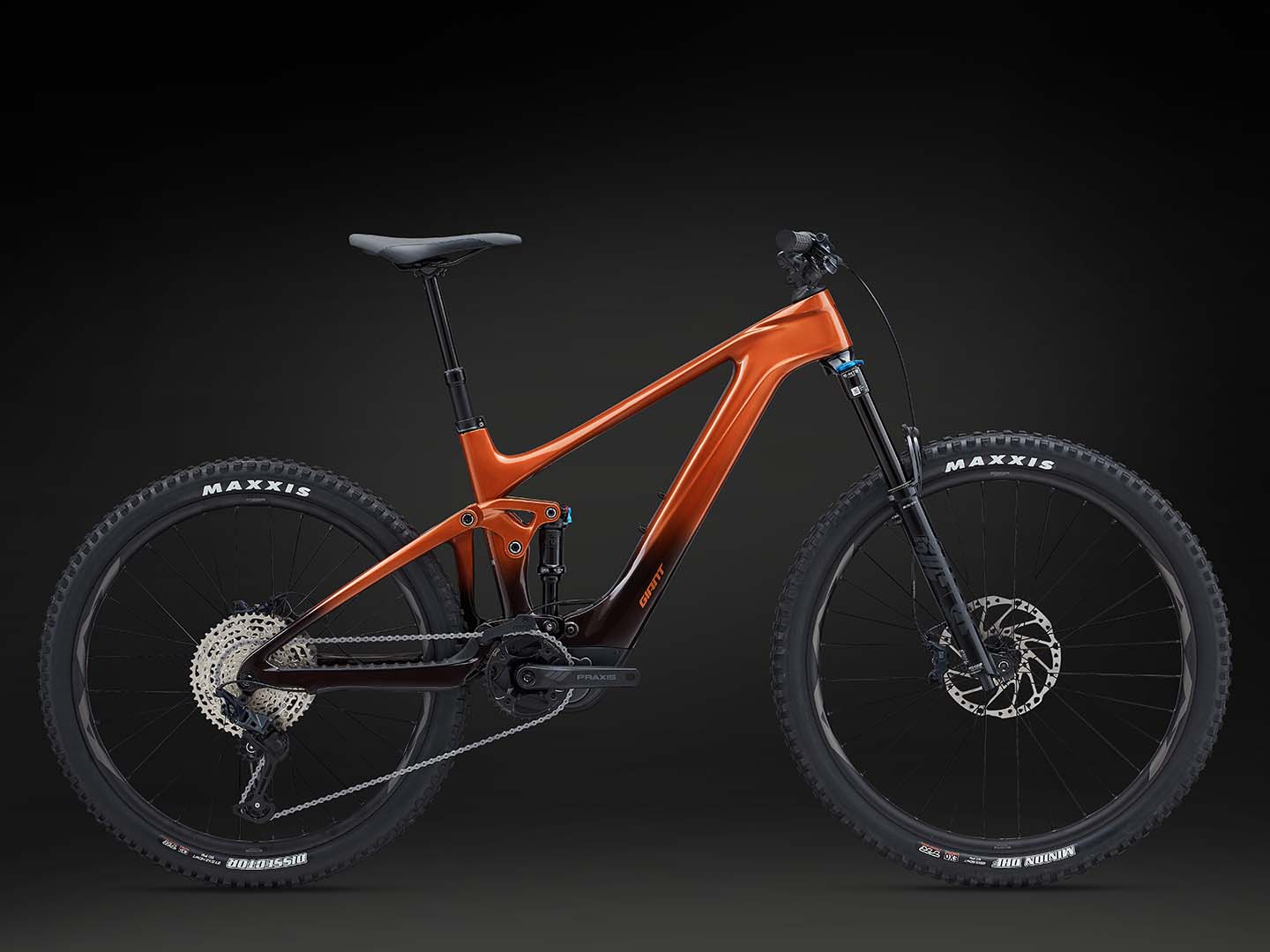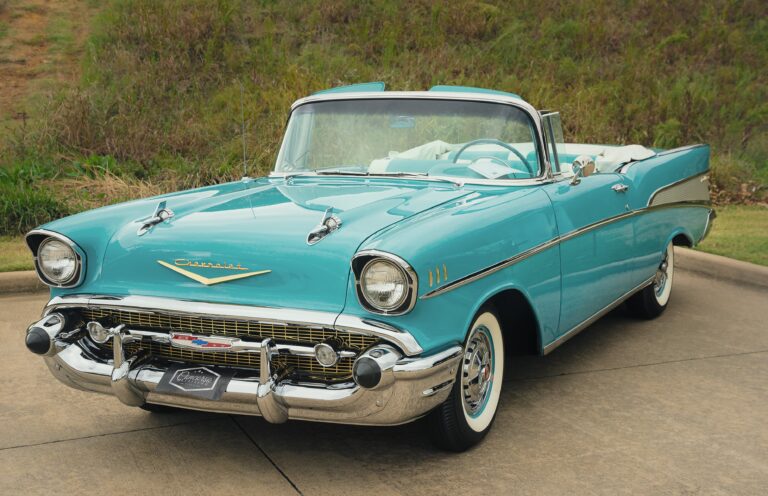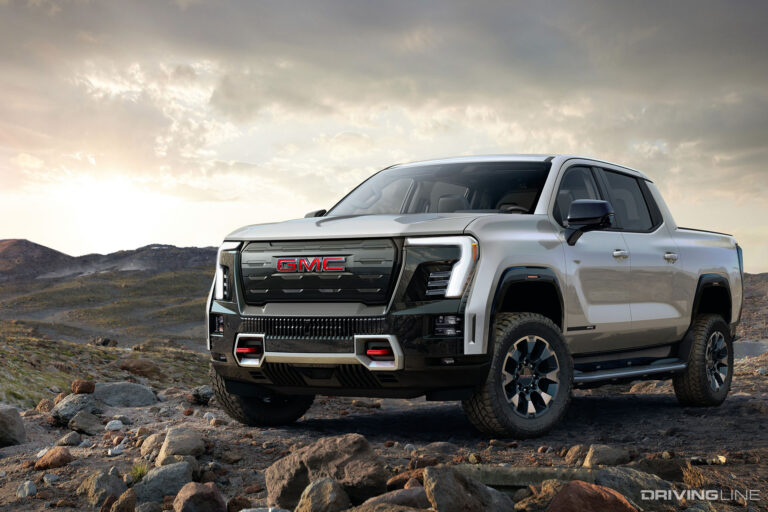Giant Trucks For Sale: Your Ultimate Guide to Acquiring Industrial Powerhouses
Giant Trucks For Sale: Your Ultimate Guide to Acquiring Industrial Powerhouses cars.truckstrend.com
The world moves on wheels, and often, those wheels belong to giants. From the colossal haulers that dominate mining landscapes to the majestic semi-trucks that form the backbone of global logistics, "giant trucks" are more than just vehicles; they are indispensable workhorses, specialized tools, and significant investments. When one speaks of "Giant Trucks For Sale," it’s not about an oversized pickup for personal use, but rather the heavy-duty, industrial-grade machines that empower industries, build infrastructure, and transport the very fabric of our economy.
This comprehensive guide aims to demystify the process of finding, evaluating, and purchasing these magnificent machines. Whether you’re a seasoned fleet manager, an entrepreneur expanding your heavy-equipment arsenal, or simply curious about the world of industrial-scale transportation, understanding the nuances of the "Giant Trucks For Sale" market is crucial.
Giant Trucks For Sale: Your Ultimate Guide to Acquiring Industrial Powerhouses
What Defines a "Giant Truck"? Beyond the Pickup
While a Ford F-350 might seem large to the average consumer, it pales in comparison to the "giant trucks" we’re discussing. These are vehicles designed for immense loads, specialized tasks, and continuous, heavy-duty operation. They typically fall into several categories:
- Class 8 Semi-Trucks (Tractors): The ubiquitous long-haulers, designed to pull trailers weighing tens of thousands of pounds. They are categorized by their Gross Vehicle Weight Rating (GVWR) exceeding 33,000 lbs.
- Heavy-Duty Dump Trucks: Essential for construction and mining, these trucks feature an open-box bed, hinged at the rear, used for transporting loose material like sand, gravel, dirt, and demolition waste.
- Off-Highway Haul Trucks (Mining Trucks): These are the true behemoths, purpose-built for mining and large-scale earthmoving operations. They are not street legal and boast capacities ranging from 100 to over 400 tons, often with GVWRs exceeding 1,000,000 lbs.
- Specialty Trucks: This broad category includes crane trucks, concrete mixers, refuse (garbage) trucks, heavy-haul tractor units designed for oversized/overweight loads (e.g., modular homes, wind turbine blades), fire trucks, and various utility vehicles.
- Vocational Trucks: Chassis-cab trucks designed to be upfitted with specific bodies and equipment for particular jobs, such as service trucks, utility trucks, or specialized delivery vehicles.

Key characteristics that define these giants include their robust frames, multi-axle configurations, powerful diesel engines (often with high horsepower and immense torque), specialized transmissions, and advanced hydraulic systems for their specific functions.
Why Buy a Giant Truck? Common Applications and Industries
The demand for "Giant Trucks For Sale" stems directly from their critical role across a multitude of sectors:
- Construction: Dump trucks, concrete mixers, crane trucks, and lowboy trailers (pulled by semi-trucks) are vital for moving materials, equipment, and building infrastructure.
- Mining & Quarrying: Off-highway haul trucks are the undisputed kings here, moving vast quantities of ore, rock, and overburden in some of the harshest environments on Earth.
- Logistics & Freight: Class 8 semi-trucks are the lifeblood of supply chains, transporting goods across continents, from consumer products to industrial machinery. Heavy-haul trucks manage oversized and overweight cargo that conventional trucks cannot.
- Waste Management: Refuse trucks are purpose-built for efficient waste collection and transport.
- Agriculture: While tractors handle field work, giant trucks are used for transporting large quantities of harvested crops, livestock, and heavy farm equipment.
- Energy Sector: Trucks are crucial for transporting oil and gas equipment, wind turbine components, and materials for power plant construction.
- Emergency Services: Fire trucks, specialized rescue vehicles, and large utility repair trucks fall into this category, requiring robust chassis and custom configurations.


For businesses, acquiring a giant truck is often a direct investment in increased capacity, efficiency, and the ability to undertake larger, more profitable projects.
Navigating the Market: Where to Find Giant Trucks For Sale
The market for "Giant Trucks For Sale" is diverse, offering options for every budget and requirement:
New Trucks
- Manufacturer Dealerships: The primary source for brand-new trucks. Brands like Freightliner, Peterbilt, Kenworth, Volvo, Mack, Western Star, Caterpillar (for mining), and Komatsu (for mining) have extensive dealer networks.
- Pros: Full warranty, latest technology, customizable specifications, financing options directly from manufacturers.
- Cons: Highest upfront cost, longer lead times for custom builds.
Used Trucks
The used market is vast and often offers significant cost savings.
- Online Marketplaces: Websites like TruckPaper.com, CommercialTruckTrader.com, EquipmentTrader.com, and IronPlanet.com are massive hubs for used commercial vehicles. You can filter by type, make, model, year, mileage, price, and location.
- Auction Houses: Ritchie Bros. Auctioneers, IronPlanet, and local industrial auctions frequently have large inventories of used trucks from fleet liquidations, bankruptcies, or government sales.
- Pros: Potentially lower prices, wide selection, quick transactions.
- Cons: "As-is" sales, limited inspection opportunities at live auctions, may require significant reconditioning.
- Specialized Brokers & Dealers: Many companies specialize in sourcing and selling specific types of used giant trucks. They often provide more curated options and can assist with inspections and financing.
- Private Sellers & Fleet Disposals: Businesses upgrading their fleets often sell their older trucks directly. This can sometimes yield good deals but requires thorough due diligence.
International Markets
For highly specialized or rare models, or to find better pricing, some buyers look to international markets. However, this adds complexity with shipping, customs, import duties, and differing regulatory standards (e.g., emissions).
Key Considerations Before Purchasing
Before committing to a giant truck, a thorough evaluation of several factors is paramount:
- Purpose and Application: This is the most critical factor. What specific job will the truck perform? What type of material will it haul? What are the terrain and environmental conditions? This dictates the required GVWR, engine power, axle configuration, and specific attachments (e.g., PTO for a dump body, fifth wheel for a trailer).
- Budget & Total Cost of Ownership (TCO): Beyond the purchase price, consider:
- Financing: Loans, leases, and specialized commercial vehicle financing.
- Fuel Costs: Giant trucks are fuel thirsty.
- Maintenance & Repairs: Parts are expensive, and specialized labor is required.
- Insurance: Commercial vehicle insurance is significant.
- Tires: A major recurring expense for heavy-duty vehicles.
- Regulatory Costs: Permits, licenses, inspections (DOT, emissions).
- Depreciation: How much value will it lose over time?
- Specifications:
- Engine: Horsepower, torque, fuel efficiency, emissions tier (important for compliance).
- Transmission: Manual, automated manual (AMT), or automatic. Consider the application (e.g., manual for heavy off-road, AMT for highway efficiency).
- Axle Configuration: 6×4, 8×4, 10×4, etc., depending on weight distribution and traction needs.
- GVWR/GCWR: Gross Vehicle Weight Rating and Gross Combination Weight Rating are critical for legal operation.
- Specialized Equipment: PTO, wet kit, crane, dump body, sleeper cab, etc.
- Condition (for Used Trucks):
- Professional Inspection: Always recommended. A qualified mechanic specializing in heavy trucks can identify potential issues.
- Maintenance Records: A complete service history is invaluable.
- Engine Hours/Mileage: For off-highway trucks, engine hours are often more indicative of wear than mileage.
- Frame Integrity: Check for cracks, welds, or bends.
- Tires & Brakes: Major safety and cost components.
- Fluid Leaks: Indicative of seal or gasket issues.
- Electrical System: Check all lights, gauges, and auxiliary systems.
- Legal & Regulatory Compliance:
- CDL Requirements: Operators will almost certainly need a Commercial Driver’s License.
- Permits: Oversize/overweight permits for certain loads or routes.
- DOT Inspections: Regular Department of Transportation inspections are mandatory.
- Emissions Standards: Ensure the truck meets current emissions regulations for your operating area.
The Buying Process: A Step-by-Step Guide
- Define Your Needs: Be specific about the truck’s intended use, required capacity, and operating environment. This helps narrow down types and specifications.
- Set Your Budget: Determine your maximum purchase price and, crucially, estimate ongoing operating costs.
- Research & Shortlist: Use online marketplaces, dealer inventories, and auction catalogs to find potential candidates. Compare specifications and initial pricing.
- Initial Contact & Information Gathering: Ask sellers for detailed specs, maintenance records, accident history, and high-resolution photos/videos.
- Physical Inspection: This is non-negotiable. If possible, bring a qualified heavy-duty mechanic. Inspect the engine, transmission, frame, suspension, tires, brakes, hydraulics, and interior.
- Test Drive/Operate: If feasible, drive the truck (or operate its specialized functions) to assess performance, handling, and any unusual noises or vibrations. For off-highway trucks, see it operate under load.
- Review Documentation: Verify the title, VIN, service records, and any warranty information.
- Negotiation: Armed with your inspection findings, negotiate the price. Be prepared to walk away if the deal isn’t right.
- Financing & Insurance: Secure funding and commercial insurance before finalizing the purchase.
- Logistics: Arrange for transport of the truck if it’s not drivable or if you’re purchasing from a distance.
Challenges and Solutions
- High Initial Cost:
- Solution: Explore the used market, consider leasing options, or secure specialized commercial vehicle financing that offers favorable terms for high-value assets.
- Maintenance Complexity & Cost:
- Solution: Budget generously for maintenance. Establish relationships with specialized heavy-duty mechanics. Implement a rigorous preventative maintenance schedule.
- Regulatory Hurdles:
- Solution: Consult with transportation consultants or legal experts to ensure full compliance with all local, state, and federal regulations regarding weight limits, permits, and emissions.
- Finding the "Right" Truck:
- Solution: Be patient and thorough in your research. Work with reputable dealers or brokers who understand your specific industry needs. Don’t compromise on critical specifications.
Price Table: Estimated Costs for Giant Trucks For Sale
| Truck Type | Typical Application | New Price Range (USD) | Used Price Range (USD) | Key Factors Affecting Price |
|---|---|---|---|---|
| Class 8 Semi-Truck | Long-haul freight, heavy equipment transport | $130,000 – $220,000+ | $30,000 – $150,000+ | Engine (HP, torque), transmission, sleeper size, mileage/hours, condition, brand. |
| Heavy-Duty Dump Truck | Construction, material hauling, aggregates | $150,000 – $350,000+ | $40,000 – $200,000+ | Axle configuration, dump body capacity, engine power, condition, brand. |
| Off-Road Mining Hauler | Large-scale mining, quarrying, earthmoving | $2,000,000 – $8,000,000+ | $500,000 – $3,000,000+ | Payload capacity, engine size, tire condition, hours, maintenance history. |
| Crane Truck | Construction, lifting, utility work | $300,000 – $1,500,000+ | $100,000 – $700,000+ | Lifting capacity (tons), boom length, chassis type, hours, condition. |
| Concrete Mixer Truck | Ready-mix concrete delivery | $200,000 – $400,000+ | $50,000 – $200,000+ | Drum capacity, chassis type, condition, maintenance. |
| Heavy-Haul Tractor | Oversize/overweight load transport | $200,000 – $450,000+ | $70,000 – $250,000+ | Axle count, engine power, specialized components (e.g., heavy-duty wet kit), brand. |
| Refuse Truck | Waste collection and transport | $250,000 – $450,000+ | $60,000 – $250,000+ | Compaction type, body capacity, chassis, hours, condition. |
Note: Prices are estimates and can vary wildly based on specific configurations, age, mileage/hours, condition, market demand, and economic factors. New custom builds or highly specialized vehicles can exceed these ranges significantly.
Frequently Asked Questions (FAQ) about Giant Trucks For Sale
Q1: What is the average lifespan of a giant truck?
A1: With proper maintenance, Class 8 semi-trucks can last for 1,000,000 miles or more (often requiring engine overhauls around 700,000 miles). Off-road mining trucks are measured in engine hours and can operate for tens of thousands of hours over 15-20+ years. The lifespan heavily depends on application, maintenance, and operating conditions.
Q2: Do I need a special license to drive one?
A2: Yes, almost all "giant trucks" require a Commercial Driver’s License (CDL) in the United States and equivalent licenses in other countries. The specific class of CDL (e.g., Class A for combination vehicles, Class B for single heavy vehicles) depends on the truck’s GVWR and whether it’s pulling a trailer.
Q3: What are the main operating costs for giant trucks?
A3: The primary operating costs include fuel, tires, maintenance and repairs (parts and labor), insurance, and driver wages (if applicable). Other costs include permits, tolls, and depreciation.
Q4: Should I buy a new or used giant truck?
A4: This depends on your budget, immediate needs, and risk tolerance. New trucks offer warranties, the latest technology, and customization. Used trucks are significantly more affordable but come with higher potential for maintenance and less certainty regarding their history. For many businesses, a well-maintained used truck offers the best value.
Q5: How important is mileage/engine hours for used trucks?
A5: Extremely important. For highway trucks, mileage indicates wear on drivetrain components. For vocational and off-road trucks, engine hours are often a better indicator of wear, as they spend significant time idling or operating at low speeds under heavy load. A pre-purchase inspection should always evaluate these metrics.
Q6: Can I finance a used giant truck?
A6: Yes, specialized commercial vehicle lenders, banks, and credit unions offer financing for used giant trucks. Interest rates and terms will depend on the truck’s age, condition, and the buyer’s creditworthiness and business history.
Q7: What is GVWR and GCWR?
A7:
- GVWR (Gross Vehicle Weight Rating): The maximum operating weight of a single vehicle, including its chassis, engine, body, fuel, and payload.
- GCWR (Gross Combination Weight Rating): The maximum operating weight of a combination vehicle (e.g., a semi-truck and its trailer), including the truck, trailer, and all cargo.
These ratings are crucial for legal compliance and safety.
Conclusion
The market for "Giant Trucks For Sale" is a complex but rewarding landscape. These powerful machines are the backbone of countless industries, enabling monumental tasks that shape our modern world. Acquiring one is a significant investment, demanding thorough research, careful consideration of specifications, and a deep understanding of operational costs and regulatory requirements.
By approaching the process with diligence, seeking professional advice, and meticulously evaluating each potential purchase, buyers can confidently navigate the market and secure the ideal giant truck to power their operations, expand their capabilities, and drive their business forward. A giant truck isn’t just a purchase; it’s a strategic asset that unlocks immense potential.






